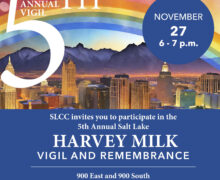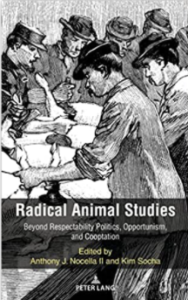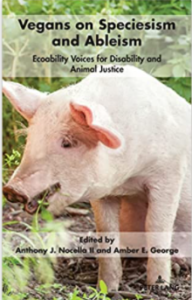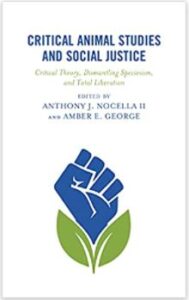Loretta Stec
Confluence of East and West: Mohandas Gandhi and Henry Stephens Salt On Kinship Across Species
By, Loretta Stec, Professor of English at San Francisco State University
The story of Mohandas Gandhi’s involvement in the vegetarian movement in London between 1888 and 1891, including his crossing paths with Henry Stephens Salt, is relatively well known, and has become a touchstone in understanding how Gandhi’s anti-colonial politics evolved, focused as they were on the concept of non-violence, or ahimsa. Tristram Stuart in his history of vegetarianism, The Bloodless Revolution, defines ahimsa in this context as “the ancient doctrine” that “an animal values its life just as humans value theirs, so destroying it manifestly against its will constitutes an act of violent injury (himsa)” (55). Europeans’ reflections on their own moral positions in the face of Indian ways of thinking about the relationship between species had been going on for centuries before the advent of an active “animal rights” philosophy in Europe. When Gandhi entered the world of vegetarians in London, (which he did thoroughly, becoming extremely active in the Vegetarian Society, writing articles for their journal, and even starting a vegetarian club) he was entering a philosophical and social space that had been influenced by both Eastern (Hindu and Jain) and compassionate Christian ideologies. Gandhi credits Salt with helping him to affirm the proscriptions against eating meat with which he had grown up in Hindu society, while Salt implicitly drew upon Eastern traditions in developing his “creed of kinship” among species. Salt’s 1892 volume Animals’ Rights Considered in Relation to Social Progress was a milestone in Western thinking about animals; Peter Singer says in the preface to a 1980 edition of Salt’s work: “I marvel at how [Salt] anticipates almost every point discussed in the contemporary debate over animal rights” (viii). The confluence of these two figures, Gandhi and Salt, in London at the end of the 19th century set the stage for future divergent traditions of philosophy and activism about animals, even while illustrating incipient limitations in cross-species conceptualizations.
Bio
Loretta Stec is Professor of English at San Francisco State University where she teaches 20th- and 21st-century literatures in English with specializations in modernist women writers and southern African authors. Recently she has begun teaching a senior seminar on interdisciplinary animal studies and literature.









